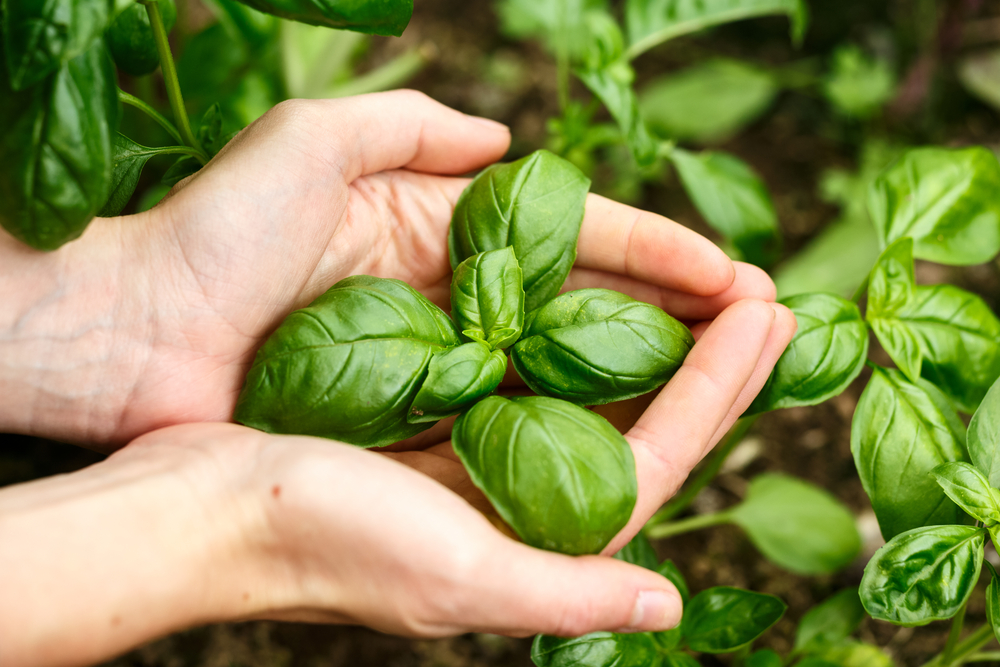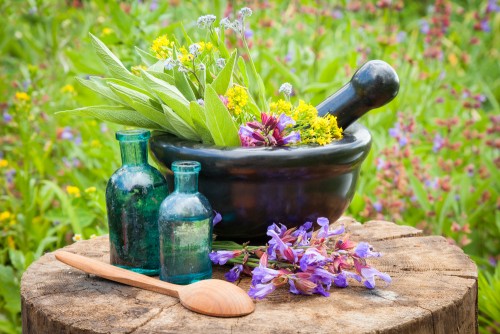
Culinary basil, Ocimum basilicum like Ocimum tenuiflorum, Holy Basil both have medicinal properties. The effects of culinary basil are much weaker however. All basils contain etheric oils, saponins, tannins, flavonoids, bitter substance, mineral salts and vitamins. Similar to Holy Basil, culinary basil aids digestion, increases absorption of nutrients and production of bile. Basil has also anti-microbial and anti-infective properties. So while on holidays and away from your naturopath it might be a good idea to keep basil in mind when you on your member of the family has digestive problems, wind, distension, indigestion or heartburn. It is a very pleasant tasting and aromatic herb. If fresh basil is not available you may use dry basil instead and make a strong tea.
 Both Basils have also effect on the nervous system. Basil leaves are beneficial in the anxiety and mild depression.
Both Basils have also effect on the nervous system. Basil leaves are beneficial in the anxiety and mild depression.
Culinary basil is an excellent ingredient in a garden salad, pasta dishes, tomatoes dishes and ingredients in pesto, herb vinegars or herb butters and is indispensable in Italian cooking.
Basil was introduced to Europe in the 16 Century and cultivated by monks and farmers as a popular addition to food. Basil was known in ancient Egypt, Greece and Rome, while in India Ocimum sanctum was cherished as a sacred herb.
by Danuta Hulajko, DH, Natural Medicine Clinic, Sydney
About the Author
 Danuta Hulajko is a holistic practitioner, international speaker, founder of the DH Natural Medicine Clinic and www.healingremedies.com.au , Sydney. She specialises in anti-aging, autoimmunity, digestive disorders and heavy metals chelation. For more information please go to our website. You can follow Danuta Hulajko work, events, seminars, expos, latest health research, her health tips and advice on Facebook and LinkedIn
Danuta Hulajko is a holistic practitioner, international speaker, founder of the DH Natural Medicine Clinic and www.healingremedies.com.au , Sydney. She specialises in anti-aging, autoimmunity, digestive disorders and heavy metals chelation. For more information please go to our website. You can follow Danuta Hulajko work, events, seminars, expos, latest health research, her health tips and advice on Facebook and LinkedIn

